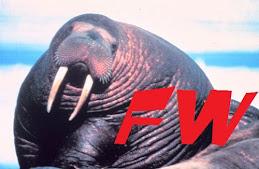I went to the discount theatre today with the vague intention of seeing Brendan Fraser's Journey to the Center of the Earth, but when I got there I decided to go with my gut and saw Swing Vote. This isn't a bad movie, necessarily. It's an okay movie stuck with Kevin Costner as its star, and that just brings down the whole proceeding. Costner has had good movies before, but even in them he was the stoic rock around which the action moved. Here he's just a dumbass, and the movie seems to think we like dumbasses because we're dumbasses, too.
Costner plays Ernest "Bud" Johnson, a drunk and a nobody. He's a single dad to a fifth-grade-or-so daughter who's much smarter than he deserves ("What do you want to be when you grow up?" "I go back and forth between veterinarian and chairman of the Fed."), making me seriously wonder how his sperm produced this bright little girl, especially when we later see her mother is even worse. Bud is the sort of guy who responds to his daughter telling him she registered him to vote through the mail with "That's just great. I could get jury duty now!" He seems to love her, but then forgets about her repeatedly. I hate Bud. Even when Bud is theoretically redeemed at the end, mostly by admitting that he's a dumbass, I still hated him.
Through some arbitrary plot mechanics that the movie knows better than to dwell on, an entire presidential election comes down to Bud's vote. The state of New Mexico is tied, and due to a voting machine malfunction that caused Bud's "vote" to not count (I'm gonna skip over a whole part here made more complicated than it needs to be, involving how Bud didn't really try to vote), he gets to re-vote ten days later. The global news media (Aaron Brown, Chris Matthews, Arianna Huffington, etc. all have extended cameos) descends upon Bud's tiny hometown of Texico, New Mexico, as do both candidates.
This is where the movie finds itself as much as it does. The candidates include the republican President Boone (Kelsey Grammer), and a democrat from Vermont named Donald Greenleaf (Dennis Hopper). Neither of these men is given much of personality, though Greenleaf, probably unintentionally, reminds viewers of John McCain. A lot. Maybe it was just me, I dunno. Anyway, both of them sycophantically try to please Bud in whatever way that they can, which Bud buys hook, line, and sinker but his daughter Molly immediately sees through. We also spend time with the candidate's advisors, with Stanley Tucci as the President's ruthless Rovian operative and Nathan Lane (perhaps the most restrained I've ever seen him) as an idealist democrat who is just so sick of losing it hurts.
The best parts of the movie come when the candidates fall all over each other in an attempt to conform to Bud's every whim, with the Republican coming out in favor of gay marriage and the Democrat denouncing abortion rights based on off-hand remarks. The campaign commercials in which they do so are absolutely hysterical. We also see each of the candidates questioning, in his own way, whether any of this is right, and how far he's willing to go. Though a bit earnest, all of that works. There's also a fairly worthless side plot involving a pretty hispanic reporter and her boss (George Lopez, who is totally pointless but at least doesn't have time to ruin the movie), but it's also fairly inoffensive.
Where the movie runs into trouble is in the relationship between Bud and his daughter, and the fact that it's front and center more than we really want it to be. Normally, I appreciate character development, but it just doesn't work. There's also a truly bizarre shaky-cam drama detour at the top of the third act that definitely didn't need to be there... it's as if the film-makers think it's the key incident in the film, but the audience just wants it to go away. In the end, Bud gives a long, vaguely poetic speech on national television that is Costner's best moment in the movie by far, but it doesn't feel earned and I was left wondering if we were supposed to think his daughter wrote it for him.
This is a movie with some thought behind it, that manages to comment on our system without seeming like a polemic for one side or the other. However, it runs into trouble trying to make those ideas into a movie. We're left with a comedy with many funny moments, but also moments like that when the Secretary of State and Attorney General of New Mexico show up at Bud's trailer to tell him about the situation. He assumes they're social services and pleads with them not to take his daughter away. I was left not sure whether this scene was supposed to be funny or not. And that's why this is definitely a dollar movie.
Subscribe to:
Post Comments (Atom)




No comments:
Post a Comment